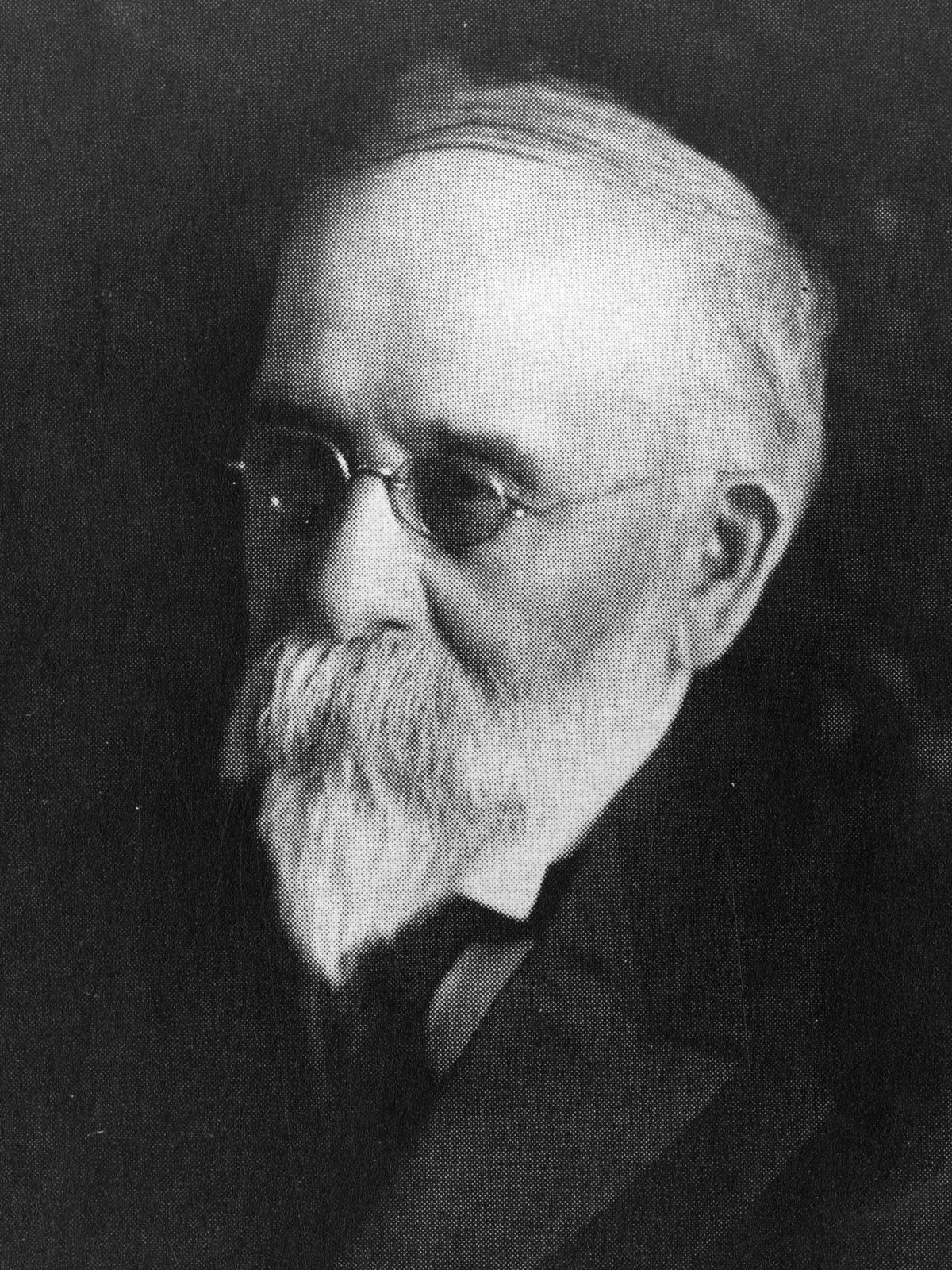
Charles Bessey was a nationally acclaimed University of Nebraska botany and horticulture professor and served as Chancellor. Charles established an agricultural experiment station to take university research to Nebraska’s citizens. He wrote congressional legislation requiring land-grant universities to distribute new knowledges/research for public education purposes. Charles believed the university should provide both classical and practical education through a single, unified state university to benefit Nebraska citizens.
Charles Edwin Bessey was born in a log house on a farm in Milton township, Wayne County, Ohio, May 21, 1845 and died at Lincoln, Nebr., February 25, 1915. His early education was largely received at home except for a brief course in the academy at Seville, Ohio, this course being interrupted by his father’s death in 1863. In 1866, he entered the Michigan Agricultural College, completing his course and receiving the degree of Bachelor of Science in 1869. Upon graduation he accepted a position as instructor in Botany and Horticulture at the Iowa State College where he remained until 1884 when he came to the University of Nebraska.
Professor Bessey was a friend of Dr. Asa Gray, Dr. Louis Agassiz, and Dr. Winchell, and other leading scientists of the earlier generation. In 1872 and 1873 and again in 1875 and 1876 he was a student under Asa Gray at Harvard.
After serving the state of Iowa at its agricultural college for fifteen years, in 1884 he accepted a position as Professor of Botany with the University of Nebraska. He found no Department of Botany at the time of his coming and was obliged to build it from the beginning. How well he succeeded is told by the magnificent department which he left to the state at the time of his death and the worldwide influence which he exerted upon students in the University. Among his contributions to education was the establishment of the German laboratory method of instruction which has since become universal in the teaching of science.
He helped to organize many of the national scientific societies and served as president of many of these associations. Among others, he was president of the Society for the Promotion of Agricultural Science, a charter member of the botanical Society of America and its president in 1895, president of the Department of Science of the National Educational Association, and president of the American Association for the Advancement of Science.
Professor Bessey received a degree of Master of Science from Michigan in 1873, of Doctor of Philosophy from the University of Iowa in 1879, and of Doctor of Laws from Iowa State College in 1898.
Doctor Bessey wrote many papers upon botanical subjects which are to be found in the leading scientific journals of America. He published a textbook on botany which passed thru many editions and was twice rewritten, the last time, in 1914, with the assistance of his son, Dr. Ernst A. Bessey, and published as “The Essentials of College Botany.”
During Doctor Bessey’s connection with the University of Nebraska, he served as Dean of the Industrial College, Dean of the College of Literature, Science, and the Arts, and, upon reorganization of the Colleges in 1909, he was made Head Dean of the University, which position he held until his death. During this period, he was Acting Chancellor from 1888 to 1891, again in 1899, and again in 1907.
In 1873, Charles E. Bessey was married to Miss Lucy Athearn of Massachusetts. To them three sons were born, Edwin, Ernst, and Carl, all graduating from the University of Nebraska, Edwin and Carl in Electrical Engineering and Ernst Bessey in Botany, his father’s chosen profession.
Dr. Bessey was a most inspiring teacher, drawing students to him in large numbers and retaining their interest by his inspiration as well as his technical knowledge. He gave young men and women an insight into the possibilities of a rich and fruitful life thru devotion to the cause of science.
His influence upon the earlier agriculture of the state of Nebraska is well known by the older generation. Upon coming to Nebraska, he assisted Governor Furnas in the organization of the first farmers’ institute of this state. He spent much time in the early years in collecting natural grasses and plants to build up a herbarium for the University.
Dr. Bessey helped to write the Hatch Act by which the Experiment Stations of the United States were established in land grant colleges. He was the first Director of the Nebraska Agricultural Experiment Station. He then withdrew from this executive work in order to pursue his much-loved profession of botany and care for the students who increasingly flocked to his classes.
His influence upon the state of Nebraska cannot be told in words. He encouraged agricultural education in the University and the rural schools and helped to organize and promote scientific education both in agriculture and in industry.
In placing this portrait in the Hall of Agricultural Achievement, we do honor to a man who gave to the state’s young life in unstinting measure, and, when he grew old in the service, rejoiced to see his foster children devoting their lives to the building of a nobler state.
